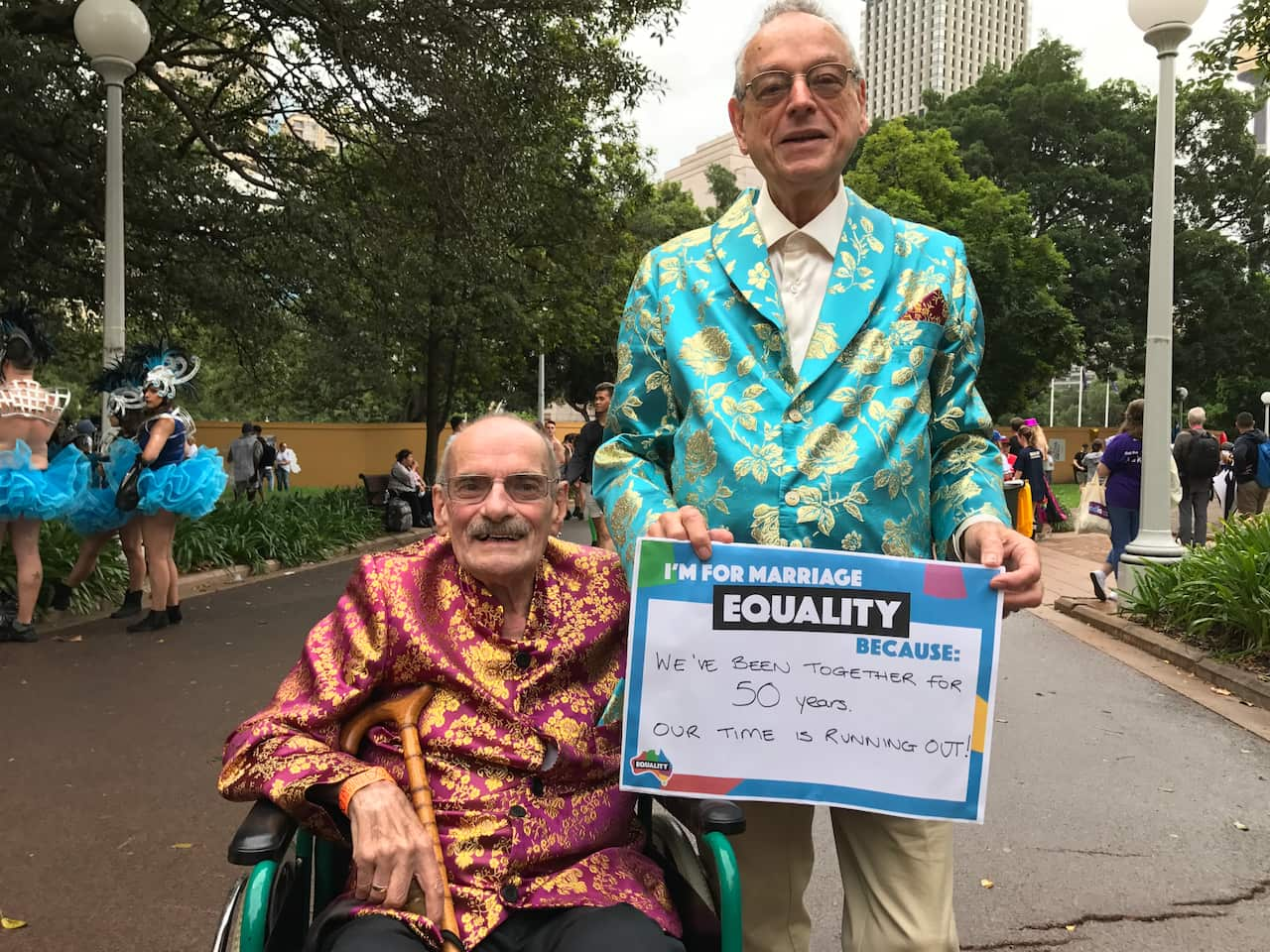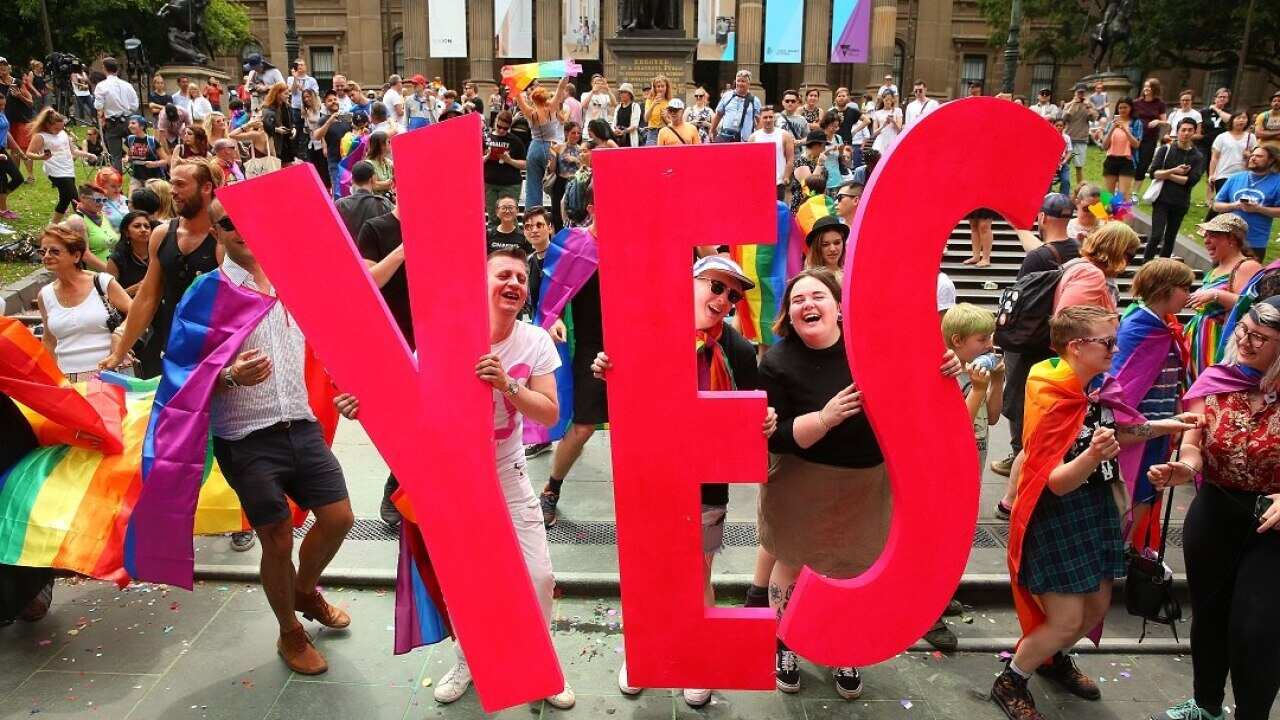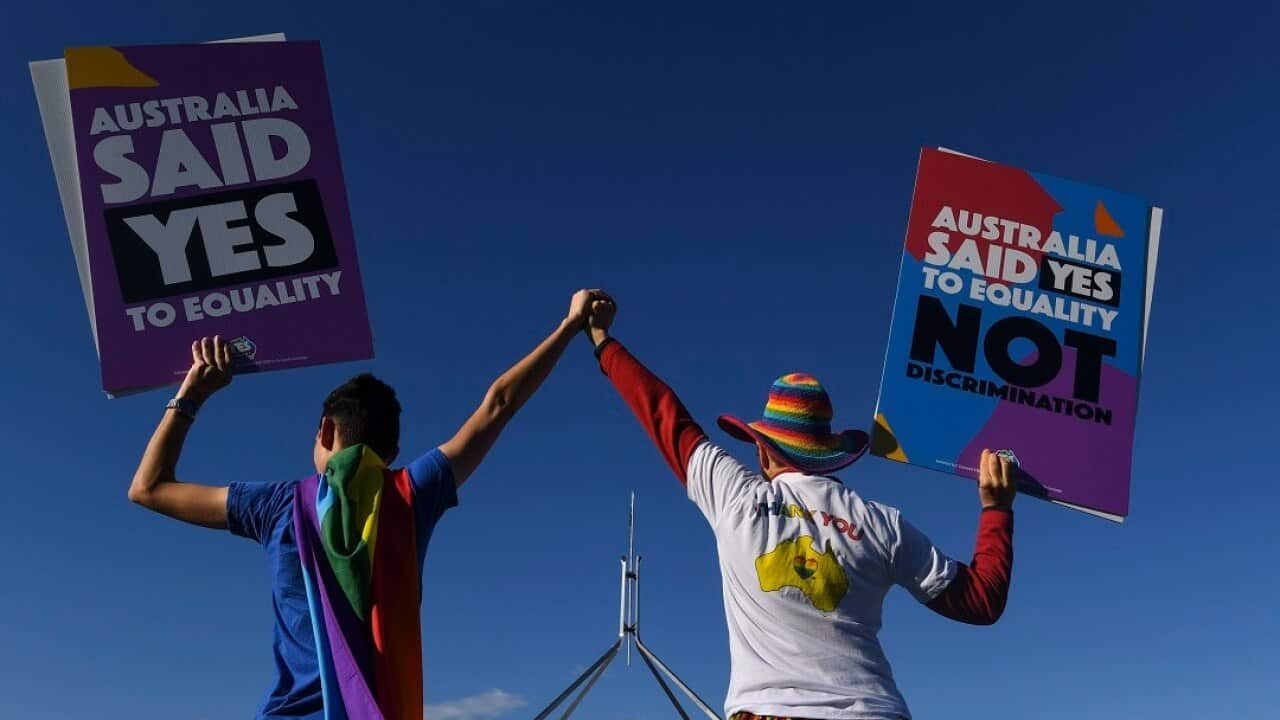When same-sex marriage finally passed through Australian parliament last December, longtime gay activist Peter de Waal was home alone. Five months earlier his partner of 50 years, Peter "Bon" Bonsall-Boone, had died - just six months shy of realising the couple's long-held dream of equality.
"I had my television on in the front room, but then I'd switch to the radio," he tells SBS from his Balmain home. After decades of campaigning - first to legally exist, then to be legally married - the "drawn out, inconsequential" speeches were too much to bare, he says.
"I kept switching between the news and Classic FM radio. I was all on my own that day."
He adds: "We had hoped it would happen earlier." Peter and Bon were first introduced to Australian audiences in 1972, when they were featured on the ABC's Chequerboard program. During the 45-minute episode, which chronicled the domestic lives of gay and lesbian couples in Sydney, the two men became the first same-sex couple to kiss on Australian television.
Peter and Bon were first introduced to Australian audiences in 1972, when they were featured on the ABC's Chequerboard program. During the 45-minute episode, which chronicled the domestic lives of gay and lesbian couples in Sydney, the two men became the first same-sex couple to kiss on Australian television.

Peter and Bon were active campaigners for marriage equality right up until Bon's death in May of 2017. Source: Supplied
Only 10 days following the program’s broadcast, Bon lost his job as a secretary at a church in Mosman. It wouldn’t be the last sacrifice he was forced to make for his relationship, either; homosexuality would remain criminalised in NSW for another 12 years and Bon would be arrested and charged at the first Mardi Gras protest in 1978. Over the following years, the couple were key instigators in the fight for change. They were founding members of the Campaign Against Moral Persecution (‘CAMP’) and helped set up the first gay and lesbian telephone helpline from the living room of their Balmain home, called ‘Phone-a-Friend’, which would later become the Gay & Lesbian Counseling Service.
Still, none of this was enough to earn the couple a phone call from then Prime Minister Malcolm Turnbull when Bon's health started to fail.
"The coalition government were talking about a plebiscite, which later became the postal survey, and we didn’t want any delay," de Waal tells SBS over the phone.
"We knew how poor Bon’s health was - so we thought we'd write a very short note to Prime Minister Turnbull, saying it was in his hands and, basically, to hurry up."
He continues: "We posted it and faxed it to his electoral office, emailed it as well. There was only one federal politician who showed any public interest in our case - Greens MP Janet Rice. She hand-delivered the note along with an article to the Prime Minister’s office, just to make sure he couldn't say that he never got it."
With a sense of urgency setting in for the couple, Turnbull's silence was deafening.
"We never got a reply, not a phone call - nothing," de Waal says. "It was a struggle, at a personal level, that lack of support or acknowledgement. There was absolute silence - that was a hard moment."
Now, one year on from the results of the national postal survey being announced, de Waal says that he believes Bon would have been "very happy and excited" with the outcome - however negative the process.
"It was one of the dreams we had, in our almost 50 years of activism," de Waal tells SBS.
"He missed out by dying - and of course I missed out as well."
According to de Waal, Bon had been passionate about achieving marriage equality ever since working as a personal carer during the AIDS epidemic and observing the challenges often faced by grieving spouses.
"He basically went to meet young people in their homes and cared for them — cooking and keeping them company," de Wall explains. "And yes, he did come across cases when a partner was refused to fulfill the wishes of his partner. There were parents or relations who would move in and decide what would happen - implementing their own wishes and not the wishes of the person who died."
He continues: "There were other cases, too, when there was no will — and there was a little bit of money or real estate and the parents would move in and ignore the existing relationship between the two men."
Having only recently "wound up" Bon’s estate, it's a struggle de Waal can now - on some level - empathise with.
"I have to say, it [the paperwork] would have been easier if we were married," he admits.
According to de Waal, there was one positive to the coalition government's approach to achieving same-sex marriage.
"There was only one good thing that came out of the postal survey results," he says. "It told me that there were pockets in Western Sydney where members of my community live under conditions, I feel, that we were living under 40 years ago."
These communities, along with those based in rural and regional areas, need more attention and resources.
"Their lives aren’t as easy as ours," de Waal tells SBS. "It would be wonderful if the federal government had used all that money and put it into community development in isolated areas and country towns."




